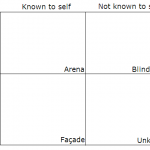TK Talks Blog by Steve Wright, MA, LCPC, RDDP Grace Program Coordinator, Timberline Knolls
Learning to Be Honest
Imagine walking into a hospital emergency room having experienced an accident. You have an obvious wound that is bleeding. You hop up on the exam table as the nurse and doctor enter and tell them, “I’m so glad you are both here. I have an ingrown toenail that hurts. Can you help me with that?” Sounds ridiculous, right?
Now imagine the wound you have is not apparent. When you ask for relief from your ingrown toenail, the doctor and nurse get busy to help you resolve that issue. Yet, the hidden wound remains open, untreated and unhealed. The truth is that you will only receive help to the level you are willing to be honest.
Sometimes that is exactly what happens when people who have emotional wounds or trauma or struggles with their mental health seek treatment. They may seek help but be reluctant to disclose the deeper hurts. Many of those wounds aren’t as obvious. They can’t be seen. So, they ask for help for more superficial things.
The reasons for this vary. Sometimes that reluctance has to do with a lack of trust. Sometimes it may be because their survival depended on keeping certain secrets hidden. Other’s may feel ashamed or blame themselves for their own distress and be unwilling to disclose for fear of judgment. Still others may be unaware of the presence of their own woundedness.
An exercise that is helpful in supporting self-disclosure and openness to feedback from others is the Johari Window. In 1955 Joseph Luft and Harrington Ingham developed a simple quadrant exercise to help explain the different areas of awareness we and those around us have of ourselves[1]. The two columns are labeled, “Known to self” and “Not known to self.” The two rows are labeled, “Known to others” and “Not known to others.”

The areas of one’s life that are known to self and known to others is the “Arena” or the Open part of the window. These are the things you are open about and willing to disclose to others.
The part of the window that is known to you but not known to others is the “Façade” or Hidden part. Those are the things you don’t disclose to others. You are aware of those things but you keep them hidden.
The part of the window that is known to others, but not known to self are the blind spots in your life. These are the things true about you but of which you are unaware.
The last quadrant contains the things you don’t know about yourself and others don’t know about you. It is aptly labeled “Unknown.”
In order for you to get the help you need two thing need to happen. First, you need to be willing to let others know the things you have kept hidden. That might mean talking about your trauma or admitting you are struggling with behaviors you feel ashamed of or that you are reluctant to stop. Remember, though, that the more open you are the more effective the help will be.
The other thing that needs to happen is for you to give others permission to inform you of your blind spots. Most of us have experienced someone pointing out a flaw or shortcoming and felt hurt by it, especially if it is done critically or judgmentally. However, the sting of becoming aware of some flaw is much lessened when we invite that feedback.
The result of being more open and inviting others to enlighten you to what you may not know about yourself is that the part of the window labeled “Unknown” begins to shrink. In other words, you gain a greater sense of self-awareness. That self-awareness can be very healing as you grow to accept who you are and receive the help you actually need.
A final thought about using this tool is to be aware that, sometimes, what you think you know about yourself may be less true than you believe. It is possible to believe something about yourself that feels very true to you but which is objectively untrue. You may believe you are unworthy or unlovable or unacceptable in some way, but, objectively, truthfully, you are completely worthy, loveable and acceptable. Those may be some of the things in your “Blind Spot” quadrant. So, be open to the feedback of others who see your worthiness, lovability, and acceptability.
Remember, your willingness to be open and disclose your “wounds” to those who can help will result in you getting effective and appropriate help. And, your willingness to receive feedback from others will result in a deeper sense of self-awareness. So, be open and be willing. You can heal and grow.
[1] Luft, J.; Ingham, H. (1955). “The Johari window, a graphic model of interpersonal awareness”. Proceedings of the Western Training Laboratory in Group Development. Los Angeles: University of California, Los Angeles.
*The opinions and views of our guest contributors are shared to provide a broad perspective of eating disorders and not intended as endorsement by iaedp™ Foundation, Inc. or its Board of Directors.*






